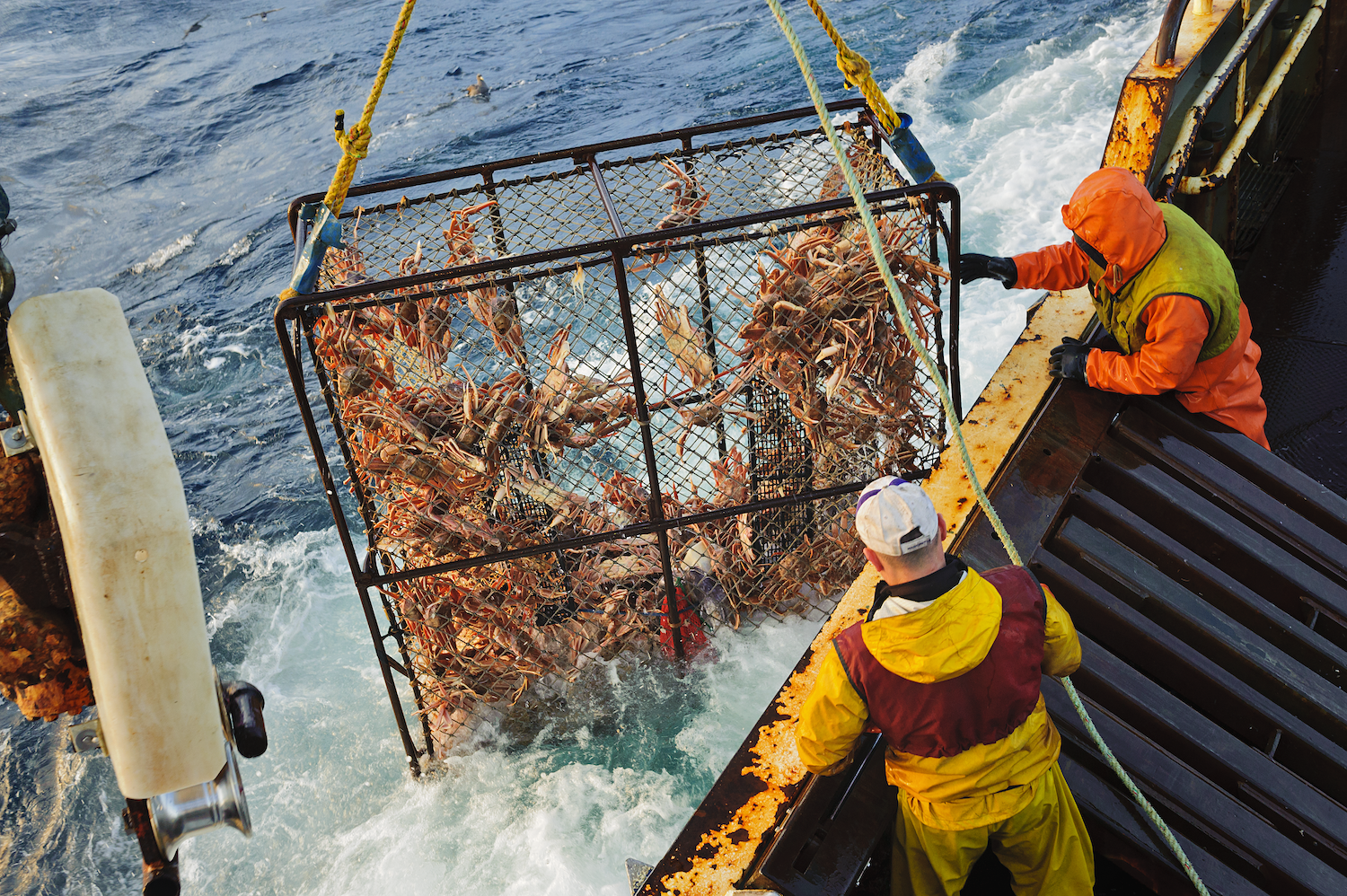Secretary of Commerce Gina M. Raimondo on Dec. 16 announced approval of fishery disaster requests for crab and salmon fisheries in Alaska and Washington over the last several years.
The declarations are for poor or closed Alaska harvests going back to 2020. They cover failures in the crab fisheries for this season and last season, including the recently canceled Bering Sea snow crab and Bristol Bay red crab harvests, as well as the closure of king crab fishing in Norton Sound in 2020 and 2021, the collapse of chum and coho harvests in the Kuskokwim River area, the poor salmon returns in the Chignik area in 2021, and low returns of pink and coho salmon om the Copper River and Prince William Sound areas in 2020.
For Washington, fishery disaster declarations were approved for the 2020 ocean salmon fisheries and the 2019 Columbia River, Willapa Bay, and Puget Sound Salmon fisheries.
“America’s fisheries are a critical part of our national economy and directly impact our local communities when disasters occur,” Raimondo said. “These determinations are a way to assist those fishing communities with financial relief to mitigate impacts, restore fisheries and help prevent future disasters.”
According to NOAA, a declared fishery disaster must meet specific requirements under the Magnuson-Stevens Act or the Interjurisdictional Fisheries Act, which could include a commercial fishery failure, significant declines in fishery access, or declines in available catch resulting from specific allowable causes such as natural causes beyond the control of fishery managers to mitigate.
The declarations mean the fisheries are eligible for disaster assistance from NOAA, though Congress must first approve and designate money to fund the assistance. A related $300 million funding request to pay affected crabbers and fishers and to support for research and habitat restoration was added into the 2022 omnibus appropriations bill currently working its way through Congress, which must pass to avert a shutdown of the federal government. The congressional delegations of Alaska and Washington led the effort to place the funding into the bill.
“Our state has suffered extraordinary economic hardship over the last few years with the impacts of the pandemic layered on top of an unprecedented number of fishery disasters,” Sen. Dan Sullivan (R-Alaska) said. “Our great fisheries resources provide a pillar within Alaska’s economy and culture. Now that a fishery disaster has been declared, we can work to secure appropriations to fund these fishery disaster declarations.”
Sullivan and Sen. Lisa Murkowski (R-Alaska) led a separate effort earlier in December, resulting in unanimous approval from the Senate Dec. 16, to pass the Alaska Salmon Research Task Force Act. The act would create a panel to conduct a scientific review to identify knowledge and research gaps to help prioritize the most-important and -relevant research to aid the recovery of Pacific salmon. The research task force would be composed of between 13 and 19 members, with the U.S. secretary of commerce appointing a representative from NOAA, the North Pacific Fishery Management Council, and the U.S. section of the Pacific Salmon Commission. The secretary would also appoint between two and five representatives of the affected fisheries in Alaska, and five academic experts in salmon biology, management, and ecology, and marine research. The governor of Alaska would also appoint one member to represent the state.
“Salmon are the lifeblood of Alaska’s economy, history, and the subsistence way of life. In some regions, we are unfortunately not only seeing a decline in salmon runs, but stock crashes that are devastating to local economies as well as the culture and spirit of those who call Alaska home,” Murkowski said in a statement. “We must act to address the problem, and gather the information we need to understand the root of it.”
The bill also directs the research task force to establish a working group specifically focused on salmon returns in western and interior Alaska, areas that have experienced drastic declines in salmon returns in recent years.
“Our fisheries have faced incredible challenges – from the fall red king crab and winter snow crab harvests being canceled to a number of salmon fishery disasters. These are not only devastating to Alaska’s fishing and seafood industry and Alaskan families, but Alaska’s economy as a whole,” Murkowski said. “But, as we work to learn as much as we can, as fast as we can, to get to the root of the problem and help Alaska get our fisheries back on track, this vital industry needs support now. I thank Secretary Raimondo for listening to the urgency of the Alaska delegation’s request and understanding the importance of not only granting these disaster declarations, but doing so expeditiously. I’m now working diligently on the next step – securing the funding necessary to support these fishery disasters.”
Jamie Goen, executive director of Alaska Bering Sea Crabbers, said in a statement her organization expects up to $280 million in emergency funding for the crab industry and the Alaska communities where the catch is processed.
“I appreciate all the efforts to speed up this process. The next step is for Congress to act,” Goen said.
This story originally appeared on SeafoodSource.com and is republished here with permission.







